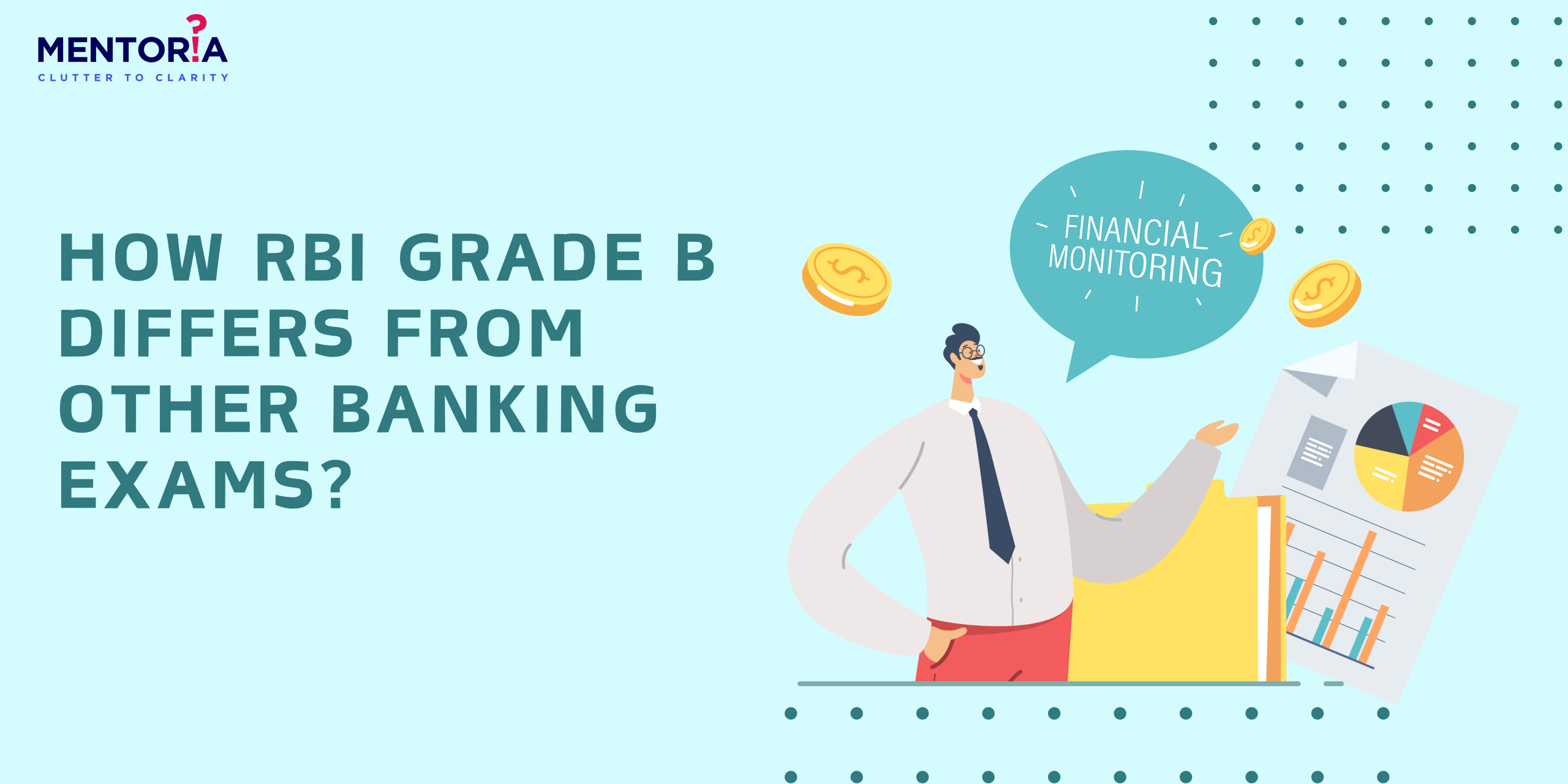How RBI Grade B Differs from Other Banking Exams?

In 2020, like many, I was lost among the many different government job opportunities—IBPS PO, SBI PO, NABARD, SEBI, and RBI Grade B. Just like others, I first assumed that banking exams focused mostly on aptitude, reasoning, English, and general awareness and RBI Grade B syllabus will more or less be the same.
My belief in that myth was shattered soon after I downloaded the RBI Grade B notification. It wasn’t only that it felt different; it was different in every way. After studying for RBI Grade B for two years and clearing it, I recognized that this exam is unlike most banking tests.
I will explain the differences clearly from personal experience.
The Educational Requirement Is Higher
You usually only need a bachelor’s degree to attempt exams like IBPS PO, SBI PO or RRB PO.
On the other hand, there are not many openings each year in RBI Grade B. You need:
- At least 60% for general and 50% for SC/ST/PwBD in Graduation.
- If you score a post-graduation score of at least 55%.
The Syllabus Is Far More Diverse
Other banking tests mainly include questions about:
- Reasoning
- Quantitative Aptitude
- English
- General Awareness
But the RBI’s Grade B role goes even further. The second phase of the exam checks your skills in:
- Economic and Social Issues (ESI)
- Finance and Management
- Descriptive English
You need to understand these things:
- Policy affecting finances and interest rates
- Budget and Economic Survey
- Principles of management theories and ethics
It means you shouldn’t focus only on coming up with solutions. It’s important to read widely and know about policies so you can discuss themes such as inflation and social inequality in essays.
More Conceptual, Less Rote
The best approach in most banking exams is to practice a lot. Discovering the questions in various mock tests will help you a lot.
You shouldn’t only focus on speed when preparing for the RBI Grade B. It’s focused on the ability to clarify and express ideas. Your descriptive English paper may ask you:
“Discuss the role of digital banking in financial inclusion.”
“What steps can India take to tackle unemployment?”
You can’t tick boxes; you need to express your ideas.
It helped me a lot to read the newspaper every day, summarize different topics and write practice essays each Sunday. The RBI seeks more than just your rote learning in the exam.
The Job Role Is More Policy-Oriented
At IBPS or SBI, newly hired POs start by handling branch tasks, talking to customers and supervising employees.
Officers chosen for Grade B in the RBI enter departments that oversee monetary policy, control currency, focus on markets, or look after banking laws.
You’re not after individual transactions. You’re organizing processes.
Better Salary, Perks, and Work-Life Balance
It is true to say that RBI Grade B officers earn the most generous pay of all banking professionals in India.
- Gross monthly salary: Around ₹1,16,000 (as of 2024)
- Housing allowance, fuel, newspaper, education, LTC, medical, etc.
- Postings in metro cities, often headquarters or regional offices
- Defined work hours with weekends mostly off
Compare this with a PO:
- Salary ~₹55,000–60,000
- Likely rural posting
- Often working on Saturdays and late evenings
Since work-life balance and having enough challenges were important to me, I picked RBI.
Selection Ratio and Difficulty Level
RBI Grade B is generally regarded as the toughest banking exam of all in India.
- Many candidates are interested, but only a very small number are selected.
- You’ll find that cut-offs are different every year, and your responses will have a strong impact on your results.
- During the interview, you are expected to respond well, show maturity, and explain economic topics.
Even though SBI or IBPS PO is competitive, these exams focus on testing speed and are popular because they have thousands of roles available.
Long-Term Career Growth and Reputation
RBI offers a clear path:
Grade B → Grade C → Grade D → Executive Director → Deputy Governor (yes, it’s possible!)
It also opens doors to:
- International assignments (IMF, World Bank)
- Central government policy roles
- Top think tanks and financial institutions
There is nothing in finance that comes close to the status of a central banker. If you say RBI in response to “Where do you work?”, people immediately respect you.
Final Words
Being in the RBI as a Grade B officer isn’t for everyone, and that’s fine.
Yet, if you care about:
- Intellectual challenge
- Economic understanding
- Policy-level impact
- An important role in India’s financial framework
In that case, it becomes more than just a job. It means following your passion.
I am not sharing this to make anyone feel unmotivated. I want you to be ready both mentally and physically. You don’t have to be really smart. You must have true interest, dedication and determination.








